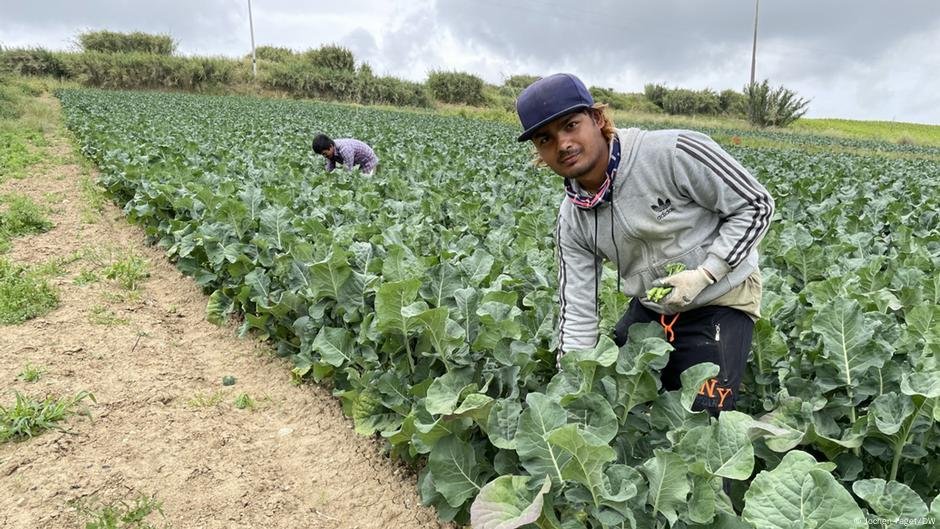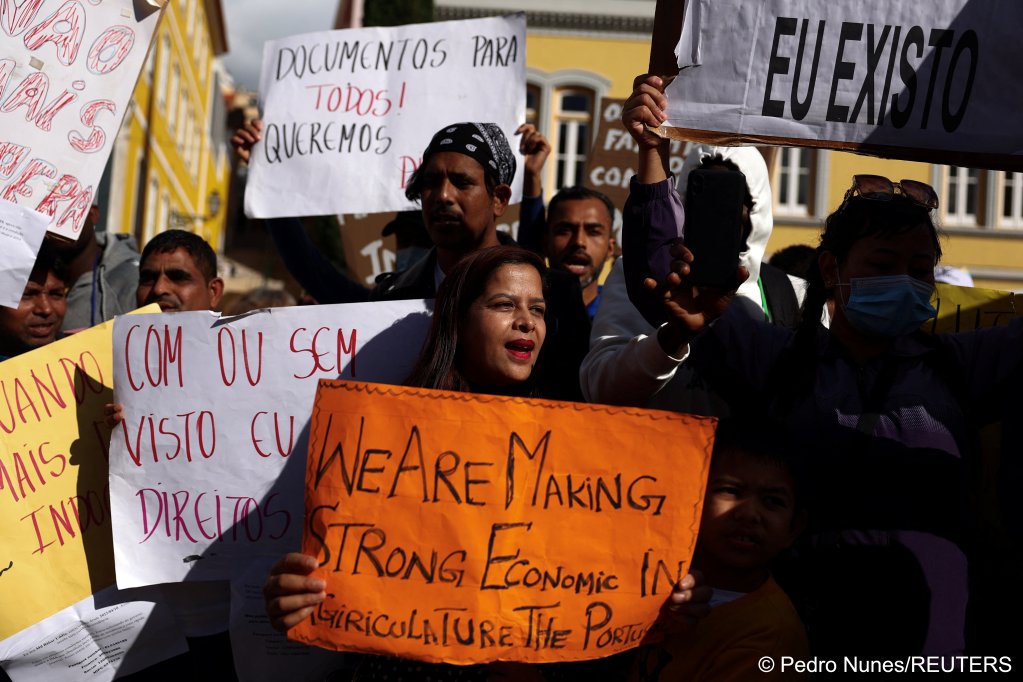Portugal's parliament has voted in favor of tighter migration rules, marking another step in a series of sweeping measures meant to restrict migration. In May, Portugal launched a major campaign to expel people living in the country without authorization.
Portugal announced new restrictions on its immigration policies that include restrictions on work visas, family reunification, and automatic residency for Brazilian nationals, reported the AFP news agency on Wednesday, July 16.
The revised provisions stipulate that work visas will now only be issued to highly qualified migrants. In addition, rules for family reunification visas have also been tightened. Brazilian nationals will no longer be eligible for automatic residency status approval.
Parliament also reportedly gave the green light for the establishment of a new unit within the national police to facilitate the deportation of undocumented people and stem irregular migration.
A move to restrict access routes to Portuguese citizenship was reported to have been deferred for further parliamentary review.
Read AlsoPortugal tightens migrant labor law amid populist pressure
New sweeping restrictions
The announcement comes as another way of sweeping immigration measures meant to restrict migration. In May, Portugal launched a major campaign to expel people living in the country without authorization.
An estimated 18,000 foreign nationals without residence authorization, mostly from India, Pakistan, Bangladesh, and Nepal, were expected to be affected.

Meanwhile, last year, Portugal banned entry for foreign workers who do not have an official work permit. The ban ended what is termed "post-entry legalization," or the practice of allowing irregularly arrived migrant workers to stay in the country while applying for a work permit.
Another immigration policy rollback included the repeal of the 2018 rule that had allowed people who had entered on a tourist visa to apply for residency after one year of work and social security contributions.

The moves, in some instances, have sparked migrant protests. Last October, dozens of people gathered outside Portugal's parliament in Lisbon to protest the recent tightening of immigration regulations.
Among the demonstrators were Bangladeshi migrants calling for the establishment of a Portuguese embassy in Bangladesh to facilitate family reunification and streamline the immigration process for their families.
Read AlsoPortuguese government announces major migrant expulsion plan
Shift to the right
The series of tightened immigration measures marks Portugal’s shift to a more right-wing approach to immigration policy. Portugal, along with neighboring Spain, was at once seen as an outlier in the European Union for its more permissive migration rules.
When he took office in March last year, Prime Minister Luis Montenegro vowed to end the country's "wide-open doors" policy.
At the end of 2024, Portugal was home to 1.55 million foreign nationals, about 15 percent of its population. The number of immigrants has quadrupled since 2017, according to official figures.
